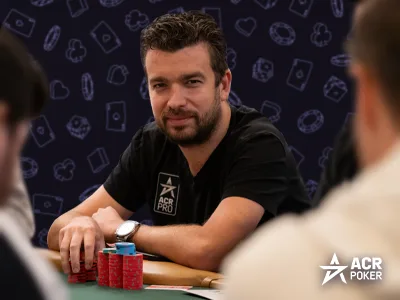Over time, cleaner decisions and sharper adjustments turn freezeouts from a grind into consistent deep runs Freezeout tournaments reward discipline, patience, and clear decision-making. With no rebuys or add-ons available, every chip matters from the first hand to the final table. Recognizing common mistakes early can protect your stack and improve long-term results in this
Category: How to
Building a Study Routine for Six-Plus Hold’em
A steady routine with clear goals leads to better retention than occasional deep dives Six-Plus Hold’em requires a different study approach than traditional No-Limit Hold’em. The reduced deck changes hand values, equity distribution, and betting dynamics. Building a focused study routine helps players adjust faster and avoid costly habits. Start by learning the rule differences
Maximizing Value From Add-on Opportunities in Rebuy Tournaments
Maximizing value from add-ons is about preparation, not impulse Rebuy tournaments create unique strategic decisions that do not exist in freezeout formats. Add-ons, in particular, can offer strong value when used correctly. Understanding when and why to take them can significantly improve long-term tournament results. An add-on usually provides extra chips for a fixed cost
Psychological Strategies for Staying Calm During Cold Decks
By focusing on solid decisions and trusting long-term outcomes, you can survive dry spells without damaging your game Cold decks are an unavoidable part of poker, and how players respond to them often matters more than the cards themselves. Long stretches of bad hands can create frustration, doubt, and rushed decisions. Staying calm during these
Bluffing Effectively in Heads-Up: When and How to Do It
Bluffing heads-up means choosing the right moments and using pressure as a calculated tool Bluffing plays a very different role in heads-up poker than it does at a full table. With only two players involved, ranges are wider, hands are weaker on average, and aggression increases naturally. This creates more chances to bluff, but also
Strategic Use of Min-Raises in Satellites
A clinical approach to pot control ensures you don unnecessarily risk your tournament life In satellite poker tournaments, the primary strategic objective is survival rather than chip accumulation. Because the payout structure is flat—awarding identical prizes to all qualifiers regardless of their final stack size—players must adopt a risk-averse approach that differs significantly from standard
Bankroll Management for Short Deck Poker
By acknowledging that you will face more frequent downswings, you can prepare yourself for the swings Short Deck poker, or Six Plus Hold’em, is a high-action game where removing low cards narrows equity gaps. For beginners, this means “swings” or variance will be much higher than in traditional No-Limit Hold’em. Proper bankroll management is about
Leveraging Table Position for Maximum Value in Freezeouts
Ultimately, playing in position reduces your risk and increases your information In a poker freezeout, where you only get one chance to win, understanding table position is your most powerful asset. Position refers to where you sit relative to the dealer button, and it determines when you act during a hand. Acting last is a
The Myth of the Hot Hand: Understanding Trends in Cold Decks
Trends are temporary, and the rules of probability are the only things that stay constant at the table The “hot hand” is one of the most dangerous illusions to master. It’s the feeling that because you won the last few pots, you are somehow more likely to win the next one. This mindset often leads
Reading Your Opponent: Tells and Behavioral Patterns in Heads-up Play
By staying focused and adjusting based on what you see, you turn small behavioral clues into real edges Heads-up poker strips the game down to its core. With only two players involved, every move carries more weight, and small details become easier to spot. Reading your opponent is no longer a bonus skill, but a
Exploiting Opponents’ Mistakes Near the Bubble in Satellites
Players who adjust their strategy to punish fear and desperation can turn others’ mistakes into a final seat Satellite tournaments create unique pressure near the bubble, where a few eliminations separate winners from nothing. Unlike standard events, all remaining seats carry equal value, making player behavior more predictable. This stage offers clear chances to take
Navigating Pre-Flop All-Ins in Short Deck Hold’em
Pre-flop all-ins are powerful tools, not automatic solutions Short Deck Hold’em creates pre-flop situations that feel extreme compared to traditional poker. With a reduced deck and higher hand values, all-ins happen more often and with thinner margins. Understanding when to commit before the flop is essential for long-term success. Hand strength shifts dramatically in Short












